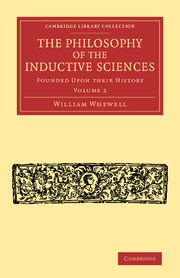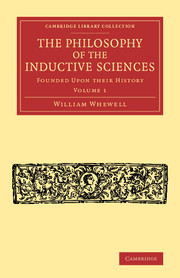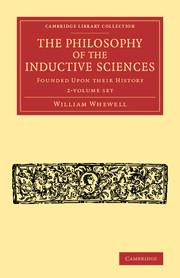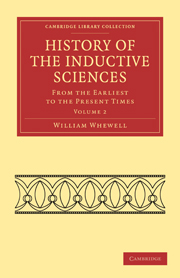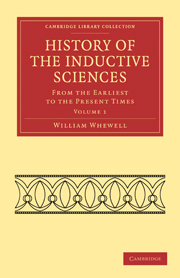The Philosophy of the Inductive Sciences
First published in 1840, this two-volume treatise by Cambridge polymath William Whewell (1794–1886) remains significant in the philosophy of science. The work was intended as the 'moral' to his three-volume History of the Inductive Sciences (1837), which is also reissued in this series. Building on philosophical foundations laid by Immanuel Kant and Francis Bacon, Whewell opens with the aphorism 'Man is the Interpreter of Nature, Science the right interpretation'. Volume 2 contains the final sections of Part 1, addressing namely the philosophy of biology and palaetiology. Part 2, 'Of Knowledge', includes a selective review of opinions on the nature of knowledge and the means of seeking it, beginning with Plato. Whewell's work upholds throughout his belief that the mind was active and not merely a passive receiver of knowledge from the world. A key text in Victorian epistemological debates, notably challenged by John Stuart Mill and his System of Logic, Whewell's treatise merits continued study and discussion in the present day.
Product details
January 2014Paperback
9781108064033
598 pages
216 × 140 × 34 mm
0.75kg
1 colour illus.
Available
Table of Contents
- Part I. Of Ideas (cont.)
- 9. The philosophy of biology
- 10. The philosophy of palaeontology
- Part II. Of Knowledge:
- 11. Of the construction of science
- 12. Review of opinions on the nature of knowledge, and the means of seeking it
- 13. Of methods employed in the formation of science.

